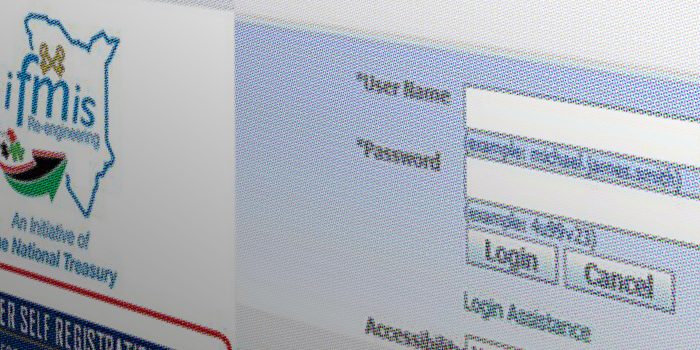Request for Quotation is widely used for AGPO Tenders
Allows different bidders to provide competitive quotations for products and services, among which the best will be selected.

According to Wikipedia, a request for quotation (RFQ) is a procurement process in which a company or public entity requests for a quote from a supplier for the purchase of specific products or services. An RFQ allows for different contractors to provide a quotation, among which the best will be selected. It also makes the potential for competitive bidding a lot higher, since the suppliers could be quite certain that they are not the only ones bidding for the products.
For private sector tenders, the bidder is allowed to submit their own Request for Quotation templates as long as all the requested information is fully provided therein. For government tenders, the procuring entity usually provides the RFQ document that should be filled in, signed and stamped by the prospective bidder.
In public procurement, the minimum number of pre-qualified suppliers that may be invited to participate in an RFQ is three (3); drawn from the public entity’s register of pre-qualified suppliers. The bidder with the successful quotation is the one who quotes the lowest price that meets the requirements set out in the request for quotation as specification of items/services to be procured.
Here’s what the Procurement Laws say about Request for Quotations
The use of Request for Quotations method is governed by Sections 105-106 of the Public Procurement and Asset Disposal Act Revised Edition 2016 as outlined below:
105. A procuring entity may use a request for quotations from the register of suppliers for a procurement if:
- The estimated value of the goods, works or non-consultancy services being procured is less than or equal to the prescribed maximum value for using requests for quotations as prescribed in the Regulations
- The procurement is for goods, works or non-consultancy services that are readily available in the market; and
- The procurement is for goods, works or services for which there is an established market.
105. A procuring entity may use a request for quotations from the register of suppliers for a procurement if:
a) The estimated value of the goods, works or non-consultancy services being procured is less than or equal to the prescribed maximum value for using requests for quotations as prescribed in the Regulations
b) The procurement is for goods, works or non-consultancy services that are readily available in the market; and
c) The procurement is for goods, works or services for which there is an established market.
In using the Request for Quotation procurement method, a procuring entity shall be subject to the following procedure in accordance with the PPDA Act (2015):
106.
- A procuring entity shall prepare a request for quotations that sets out the following:
- the name and address of the procuring entity:
- the specific requirements prepared under section 67 relating to the goods, works or services being procured;
- an explanation of where and when quotations shall be submitted; and
- anything else required under the Act or the Regulations to be set out in the request for quotations.
- An accounting officer of a procuring entity shall deal with the request for quotations in accordance with the following:
- the accounting officer of a procuring entity shall give the request to such persons as are registered by the procuring entity;
- the request shall be given to as many persons as necessary to ensure effective competition and shall be given to at least three persons, unless that is not possible;
- the accounting officer of a procuring entity shall give the request to each person early enough so that the person has adequate time to prepare a quotation;
- at least three persons shall submit their quotations prior to evaluation.
- The successful quotation shall be the quotation with the lowest price that meets the requirements set out in the request for quotations.
- Where the lowest price is above the prevailing market rates, the request for quotations shall be cancelled or terminated in accordance with the cancellation and termination procedures set out in the Act
- The following shall apply with respect to the contract resulting from a procurement by a request for quotations:
- the procuring entity shall place a purchase order with the person submitting the successful quotation;
- the person submitting the successful quotation shall confirm the purchase order in writing; and
- an accounting officer shall consider recommendations for award arising from a contract under procurement by a request for quotations for approval or rejection.
The Maximum Level of Expenditure for RFQs
Guided by the Second Schedule of the Public Procurement and Assets Disposal Regulations (2020), where the procurement method is a request for quotation, the threshold matrix is provided as follows:
| Procurement Method – Request for Quotations (section 105 of the Act) | ||
| Goods | Works | Services |
| Maximum level of expenditure under this method is KES. 3,000,000 per request for quotation. | Maximum level of expenditure under this method is KES. 5,000,000 per request for quotation. | Maximum level of expenditure under this method is KES. 3,000,000 per request for quotation |
| No minimum | No minimum | No minimum |
RFQs and AGPO Opportunities
Through AGPO, the government has identified and certified businesses owned by the Youth, Women and Persons with Disabilities that are actively seeking to work with the government thereby providing a pool of shortlisted businesses that can be specifically targeted with these RFQs.
While Section 96 of the PPAD Act requires the procuring entity to take steps to bring the invitation to tender to the attention of those who may wish to submit tenders. But there are exceptions to this requirement to advertise where the procurement method is the restricted tender, direct procurement, request for quotations, low-value procurement and force accounts.
This is part of the reason why the Kenya Government encourages the maximized use of RFQs by procuring entities as a means of enabling the implementation of the Access to Government Procurement Opportunities (AGPO) programme as the AGPO list acts as a pre-qualification criteria for any public entity.
This article is part of the Procurement Methods blog series.







